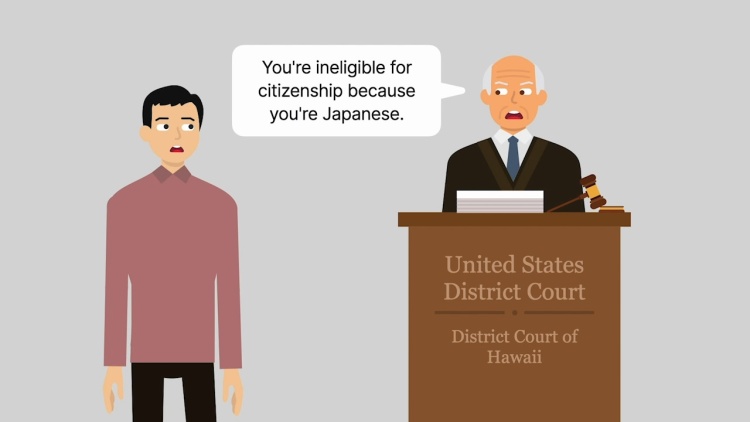Takao Ozawa v. United States
United States Supreme Court
260 U.S. 178 (1922)

- Written by Katrina Sumner, JD
Facts
Takao Ozawa (plaintiff) was a Japanese man who petitioned to become a United States citizen after he had lived in America for 20 years. Ozawa was born in Japan. Both Ozawa and his children attended schools in America. Ozawa’s family worshipped in American churches and spoke English while at home. In terms of fitness for citizenship, these attributes made Ozawa suitable for naturalization. However, when Ozawa applied for citizenship in a federal district court, the United States (defendant) denied Ozawa’s petition. The court explained that Ozawa did not qualify for citizenship under the naturalization laws because Ozawa was Japanese by ethnicity and had been born in Japan. Ozawa appealed to the United States Court of Appeals for the Ninth Circuit. Before ruling on the case, that court certified two questions to the United States Supreme Court. The first related to whether one naturalization statute limited another. The second addressed whether a Japanese person may be eligible for United States citizenship.
Rule of Law
Issue
Holding and Reasoning (Sutherland, J.)
What to do next…
Here's why 907,000 law students have relied on our case briefs:
- Written by law professors and practitioners, not other law students. 47,100 briefs, keyed to 996 casebooks. Top-notch customer support.
- The right amount of information, includes the facts, issues, rule of law, holding and reasoning, and any concurrences and dissents.
- Access in your classes, works on your mobile and tablet. Massive library of related video lessons and high quality multiple-choice questions.
- Easy to use, uniform format for every case brief. Written in plain English, not in legalese. Our briefs summarize and simplify; they don’t just repeat the court’s language.





